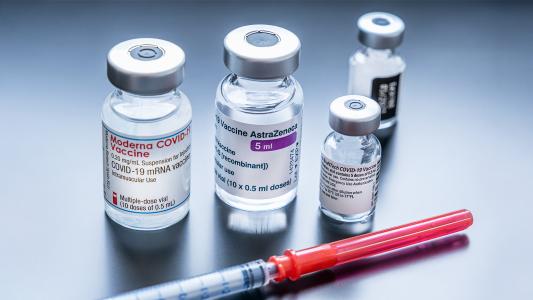Drugmaker Merck has agreed to license a promising COVID-19 treatment to manufacturers in low- and middle-income countries for free — a move that could greatly expand access to the potentially life-saving antiviral pill.
The challenge: The only FDA-approved COVID-19 treatment is remdesivir, and it’s an antiviral medication that must be administered intravenously, over the course of several days, which largely limits its use to people who are already hospitalized.
An antiviral pill would be easier to administer before a COVID-19 patient requires hospitalization, which is when antivirals are most effective. It would also have the benefit of being easier to manufacture, store, and distribute than an IV drug.
Merck’s deal with the MPP could cut the per-course cost of the antiviral pill to just $8.
Merck’s antiviral pill: While several companies are developing antiviral pills, Merck’s (molnupiravir) is one of the most promising, reducing high-risk COVID-19 patients’ chances of hospitalization or death by 50% in a phase 3 trial.
Merck has already submitted its trial data to the FDA in the hope of securing an emergency use authorization for the pill, but the agency likely won’t deliver a decision on that until December.
The deal will last until COVID-19 is no longer a public health emergency of international concern.
In the meantime, the company is laying the groundwork for its antiviral pill to have an impact beyond the U.S., announcing on October 27 that it will share its license for the drug with the UN-backed Medicines Patent Pool (MPP).
The MPP can now issue sublicenses for molnupiravir to drugmakers in 105 low- and middle-income countries.
Those licenses will allow the companies to produce and distribute generic versions of molnupiravir without paying any licensing fees to Merck, for as long as the WHO classifies COVID-19 as a public health emergency of international concern.
Why it matters: The U.S. has already agreed to buy 1.7 million courses of Merck’s antiviral drug (if it’s authorized) at a cost of $712 each. Remdesivir, meanwhile, costs more than $3,000 per course in the U.S.
Merck’s deal with the MPP could cut the per-course cost of the antiviral pill to just $8 in places that might not be able to afford to pay much more than that.
“This agreement with MPP is another important element in our multi-faceted strategy to accelerate broad, affordable access to molnupiravir, if approved or authorized, for patients no matter where they live, including in countries where governments face greater challenges to finance healthcare,” Frank Clyburn, Merck’s president of human health, said.
We’d love to hear from you! If you have a comment about this article or if you have a tip for a future Freethink story, please email us at [email protected].






